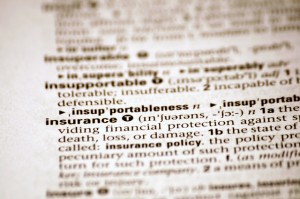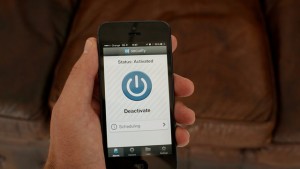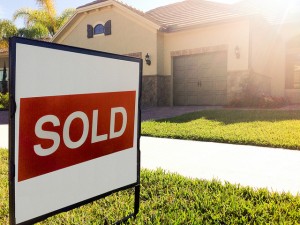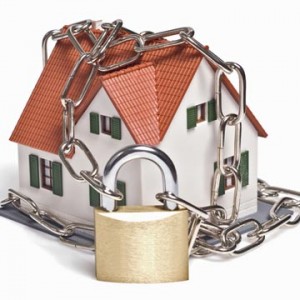As a homeowner, you have no doubt invested precious time and money with realtors, bankers, maybe lawyers, even architects and contractors. All in an effort to secure the home of your dreams. Now that you have it, the wallet and purse draining may seem never ending. As a first time home buyer or builder, you probably do not have all of the necessary tools and home accents of a fully functioning domicile. You’ll probably need to purchase the essentials like furniture, and appliances like a refrigerator and a washer/dryer. Needless to say, these items do not come cheap.
In addition to the essential purchases, your home security is a top priority. You’ve moved in, you have the keys – well what if all of your new neighbors also have keys? It’s not uncommon for neighbors to exchange a set of keys, and since you don’t know the neighbors yet, changing your locks should be step number one. In fact, according to Zillow.com you should assume that, “everyone and his brother has a set of keys to your new home.”
Realizing your home is potentially compromised, you change your locks. Great! You’ve taken the first step in protecting what matters most. However, a simple lock and key may not cut it when it comes to home security. Having a comprehensive security system installed will not only help prevent catastrophe, it could save you money. If you’re considering a home security system, be sure to hire a licensed and insured specialist like Perfect Connections, Inc. Here at Perfect Connections, Inc. we can guide you through the subtle nuances of a comprehensive security system from customizing features to final installation.
How can a security system SAVE you money?
Besides the more obvious savings that come with a security system, like fire and burglary prevention, you can actually save on your homeowners insurance. Wait, insurance companies offer discounts? Yes they do! In all likelihood, during the process of buying your home you’ve signed for a home insurance policy. Most mortgage lenders won’t let you sign for a house until you have an insurance policy in place, or are working on obtaining one. According to Peter G. Miller for realtor.com, even if you own the house outright, sans mortgage, insurance is still a smart investment as it will help protect you and your family from financial disaster if something were to happen to your home.
 Just how much can you save by installing a security system? The answer to this question varies, it all depends on your insurance provider and the state you reside in. Although each company has a different policy, the average savings can be up to 20% (Erin Raub for safesoundfamily.com). Each company will likely have different discount/credit or premium reduction qualifications. Your best bet is to call your policy provider and ask specific questions, especially if you’re at the beginning stages of choosing a security system. There will be different discounts for various security features. For example, your discount/credit will be less if you only have local fire alarms and dead bolts versus a comprehensive monitored alarm system. Nick DiUlio for insurancequotes.com references Michael Barry from the Insurance Information Institute, citing that, “homeowners typically can expect discounts of at least 5 percent for smoke detectors, burglar alarms or deadbolt locks. For more advanced alarm systems that report directly to a police station, fire department or other monitoring stations,some companies may cut premiums by as much as 15 percent or 20 percent.” This type of discount may also be available to renters.
Just how much can you save by installing a security system? The answer to this question varies, it all depends on your insurance provider and the state you reside in. Although each company has a different policy, the average savings can be up to 20% (Erin Raub for safesoundfamily.com). Each company will likely have different discount/credit or premium reduction qualifications. Your best bet is to call your policy provider and ask specific questions, especially if you’re at the beginning stages of choosing a security system. There will be different discounts for various security features. For example, your discount/credit will be less if you only have local fire alarms and dead bolts versus a comprehensive monitored alarm system. Nick DiUlio for insurancequotes.com references Michael Barry from the Insurance Information Institute, citing that, “homeowners typically can expect discounts of at least 5 percent for smoke detectors, burglar alarms or deadbolt locks. For more advanced alarm systems that report directly to a police station, fire department or other monitoring stations,some companies may cut premiums by as much as 15 percent or 20 percent.” This type of discount may also be available to renters.
Here is a list (in no particular order) of some insurance companies that offer home security discounts/credits:
- State Farm
- Chubb Personal Insurance
- Liberty Mutual Insurance
- Allstate
- Farmers Insurance
- Progressive
- Nationwide
Aside from the cost of a security system, and the installation, you will be paying a monthly monitoring fee which can range anywhere from $25-50. Over the span of a year this will cost you between $300-600. How does this compare with the cost of insurance? According to homesecuritysystems.info the average homeowner will spend between $1,200-1,500/year on insurance premiums. If your insurer offers a discount on the high end, up to 20%, you could save up to $300/year. Keep in mind the fact that every time you make a claim, your premium is likely to go up. Installing a security system can help you avoid having to make claims by protecting your home and its contents.
As long as you own your security system, you will save money on insurance. Even if the initial cost of a security system may seem substantial, it typically ends up paying off in the end. Whether it’s preventing an attempted burglary or lowering your yearly insurance costs, a security system is a sound investment.
For more information on security systems and their features go to Perfect Connections, Inc. We’ve been providing security systems solutions to Central and Northern New Jersey since 1992. Needless to say, we know a thing or two about home security applications, and their benefits.
If you live in Central or Northern New Jersey and would like information on any of the topics discussed above, please call 800-369-3962 or simply CLICK HERE.
Image Credits: Image #1 by 401kcalculator.org-Flickr-Creative Commons, Image #2 by Alan Cleaver-Flickr-Creative Commons
 When you’re a homeowner one of your top priorities is ensuring the safety of your home. Your home is what protects you and your family. Nobody wants to deal with a home break-in but they are a sad reality in our everyday lives. Fortunately there are many ways you can safeguard your home from such devastation. The best way to deter crime is to be prepared for it. If you want to prevent a home invasion you must first understand when and how burglars are likely to attempt them. At
When you’re a homeowner one of your top priorities is ensuring the safety of your home. Your home is what protects you and your family. Nobody wants to deal with a home break-in but they are a sad reality in our everyday lives. Fortunately there are many ways you can safeguard your home from such devastation. The best way to deter crime is to be prepared for it. If you want to prevent a home invasion you must first understand when and how burglars are likely to attempt them. At  In the wake of home automation, smart home, or connected home technology you may have come across the term Z-Wave technology. What is it?
In the wake of home automation, smart home, or connected home technology you may have come across the term Z-Wave technology. What is it? 
 How do you judge the value of your home? Is it the market price? Is it the neighborhood where it’s located? Or maybe it’s the aesthetics. Actually it’s all of the above and then some. If you’re a homeowner one sure fire way to add value to your home is by installing a comprehensive home security system. A home security system offers a peace of mind to homeowners they can’t get anywhere else, but that’s not all.
How do you judge the value of your home? Is it the market price? Is it the neighborhood where it’s located? Or maybe it’s the aesthetics. Actually it’s all of the above and then some. If you’re a homeowner one sure fire way to add value to your home is by installing a comprehensive home security system. A home security system offers a peace of mind to homeowners they can’t get anywhere else, but that’s not all.
